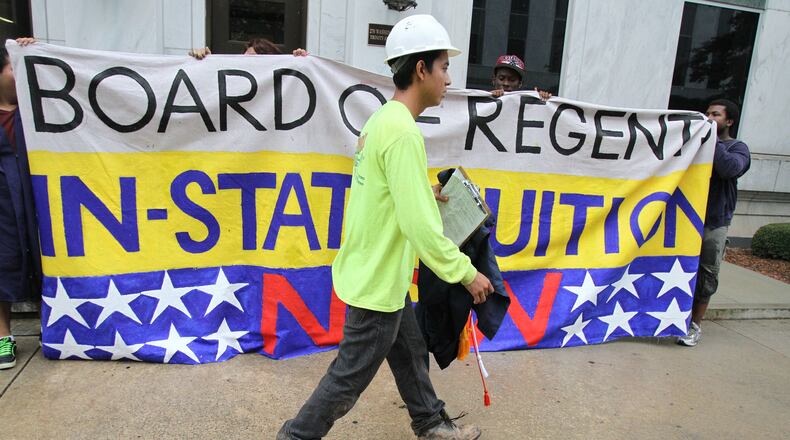The Georgia Supreme Court agreed this week agreed to hear oral arguments in a case involving in-state tuition at Georgia's public colleges for certain immigrant students.
The case involves a lawsuit filed against the state’s Board of Regents by a group of 39 immigrant students over its policies requiring students to have “lawful presence” in the state to pay the cheaper in-state rates.
The students and their attorney have argued that being accepted into the Obama administration’s Deferred Action for Childhood Arrivals program, or DACA, makes them lawfully present in the country. The DACA program applies to immigrants who were brought to the United Sates as children, attended school in the country and have not been convicted of felonies. The program temporarily prevents them from being deported and allows them to receive work permits.
The DACA recipients have said the out-of-state tuition rates, which can be thousands of dollars more than in-state rates, have prevented some of them from attending and completing their education at Georgia colleges.
State attorneys fought to dismiss the case arguing that the Board of Regents is protected from the lawsuit because of sovereign immunity, which shields state agencies from such lawsuits. The state Supreme Court will consider in October whether the state Court of Appeals erred in agreeing with this argument.
About the Author
Keep Reading
The Latest
Featured



